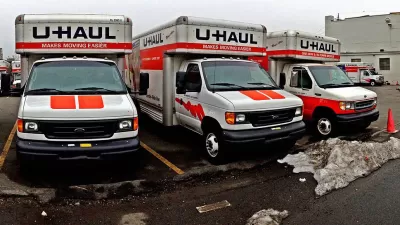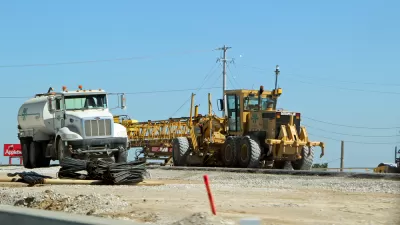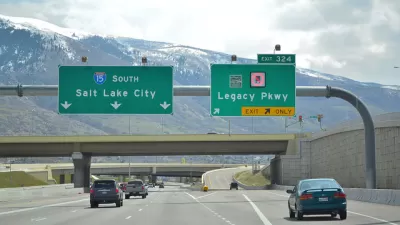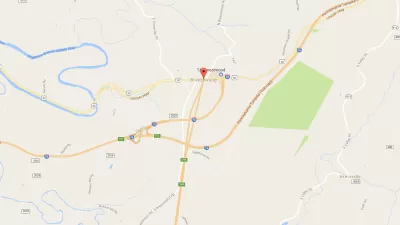There was a time when moving was very common among Americans, as that has changed it's had profound impacts on the economy and life in the United States.

"Mobility of Americans has reached record lows," Richard Florida reports in CityLab.
This matters in part because, as Florida writes, "Residential mobility matters both to the economic prospects of individuals and the economic dynamism of our cities and nation as a whole." Where a person lives has a huge impact over how much money they make even for the same job.
Trying to figure out why this may have happened, Florida points to a few possible causes including: increased occupational licensing (which ties people to the state that licenses them), land use restrictions (which keeps economies from building for the markets that are creating demand), and home ownership subsidies (which push Americans to tie themselves to a specific area). Whatever the cause, Americans continue to move less and less—2015 was the previous record low, only to be surpassed by 2016.
FULL STORY: America the Stuck

Planetizen Federal Action Tracker
A weekly monitor of how Trump’s orders and actions are impacting planners and planning in America.

Restaurant Patios Were a Pandemic Win — Why Were They so Hard to Keep?
Social distancing requirements and changes in travel patterns prompted cities to pilot new uses for street and sidewalk space. Then it got complicated.

Map: Where Senate Republicans Want to Sell Your Public Lands
For public land advocates, the Senate Republicans’ proposal to sell millions of acres of public land in the West is “the biggest fight of their careers.”

Maui's Vacation Rental Debate Turns Ugly
Verbal attacks, misinformation campaigns and fistfights plague a high-stakes debate to convert thousands of vacation rentals into long-term housing.

San Francisco Suspends Traffic Calming Amidst Record Deaths
Citing “a challenging fiscal landscape,” the city will cease the program on the heels of 42 traffic deaths, including 24 pedestrians.

California Homeless Arrests, Citations Spike After Ruling
An investigation reveals that anti-homeless actions increased up to 500% after Grants Pass v. Johnson — even in cities claiming no policy change.
Urban Design for Planners 1: Software Tools
This six-course series explores essential urban design concepts using open source software and equips planners with the tools they need to participate fully in the urban design process.
Planning for Universal Design
Learn the tools for implementing Universal Design in planning regulations.
Heyer Gruel & Associates PA
JM Goldson LLC
Custer County Colorado
City of Camden Redevelopment Agency
City of Astoria
Transportation Research & Education Center (TREC) at Portland State University
Camden Redevelopment Agency
City of Claremont
Municipality of Princeton (NJ)





























